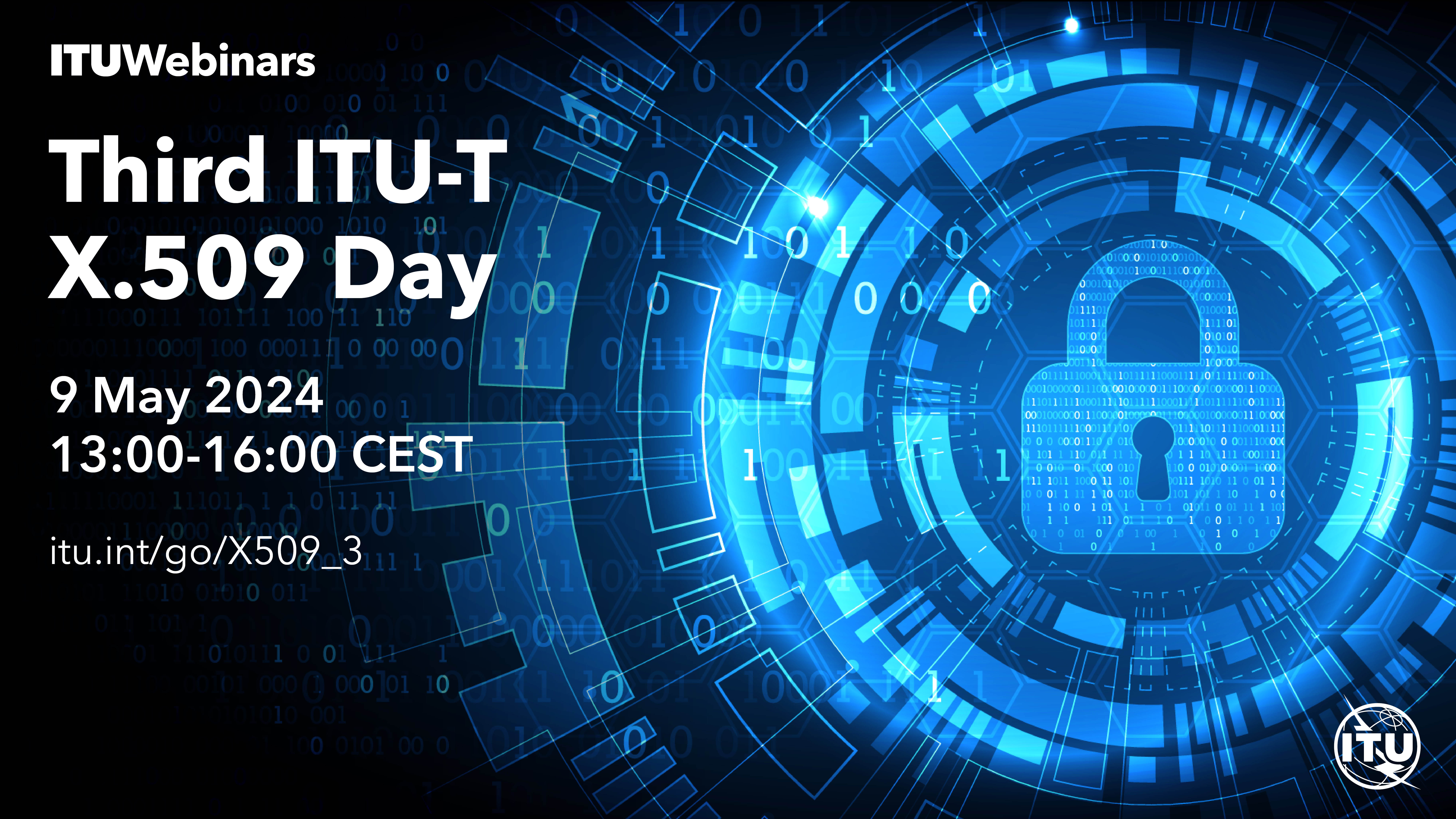
The International Telecommunication Union (ITU) organized the Third ITU-T X.509 Day that took place virtually on 9 May 2024 from 13h00 to 16h00 CEST.
ITU-T
X.509 is the universal language for public key infrastructure (PKI) and privilege management infrastructure (PMI) – the fundamental building blocks for secure transactions in business-to-business (B2B), business-to-customer (B2C) and government-to-citizen (G2C) environments.
As a widely recognized standard, ITU-T X.509 provides a reliable and secure foundation for a wide range of industries, from agriculture and education to energy, finance, entertainment, health, manufacturing, transport, and utilities. The basic data structures defined in ITU-T X.509 support seamless interoperability and application-specific extensions, making it indispensable to businesses, consumers, governments and all organizations worldwide.
For over 35 years, ITU-T X.509 has been empowering businesses and organizations globally to secure their transactions and communications and ITU continues to honour the legacy of ITU-T X.509 by celebrating its achievements on this day.
The theme of this year's event was : Challenges and opportunity for migration of X.509 to PQC .
The objectives of this event include, but were not limited to:
- Reviewing the progress of ITU-T X.509 since the second ITU-T X.509 Day,
- Analysing the impact of quantum computing to ITU-T X.509 and cutting-edge progress with decentralized PKI,
- Identifying potential directions for future developments of ITU-T X.509, with a focus on migration plans for ITU-T X.509 that incorporate post-quantum cryptography, and
- Discussing how relevant SDOs could enhance collaboration on future standardization work on and related to ITU-T X.509.
Target audience
Participation was free of charge and open to all interested stakeholders including ITU Member States, Sector Members, Associates and Academic Institutions and to any individual from a country that is a member of ITU and who wishes to contribute to the work. The event was held fully virtual and in English only. Registration to the event was mandatory.
